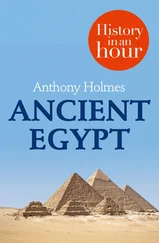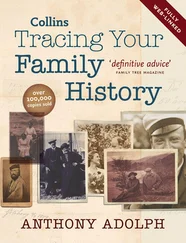1 ...6 7 8 10 11 12 ...15 Finally, though, he had to. He sat heavily in the backseat and the car felt immediately full of him, his weight and his scent and his peculiar breathing. He sucked in air heavily, slurped it.
“You remember Bob, Luca?” my father asked.
Bob Painter’s brow was lowered. He seemed a little shamefaced, as though all power was on my side, and after we nodded to one another, he looked out the window.
“The Inca boy,” he said, and smiled in a crooked manner.
“Who spoke to you?” he asked my father.
“Just Vinnie, that’s all.”
There was a silence after that; it meant something.
Bob Painter had said to me, on the night of the cookout, that he lived in Woburn with his three little girls. There is a moment, before you know anything for sure, when you dare to imagine things: that we were going there, to Bob’s house, for dinner, after which we would drive to wherever my father lived now. Bob was his loyal friend, a buddy. The gathering of inferences was like a storm that would pass over us. My father’s life would be white and clean, a state of unspoken confusion and quiet.
The truth was, instead, that my father and Bob Painter lived together in a rooming house in the working-class section of our own town, a place I could have walked to, easily, on any of those endless summer afternoons of his absence. They had one room, twin beds. This was where they were taking me, this was the there my mother had been referring to. My father showed me around, the hall that smelled of disinfectant, the bathroom down the hall. As soon as we were in the room, Bob Painter sat in a chair and opened a beer, drank one after another, quietly, contemplatively, the sedateness of his behavior a kind of nod to my being here. On top of the bureau sat a bottle of Old Grand-Dad, but he did not touch it that night. My father kept an eye on him, then snuck me into the hall. “Don’t worry about Bob, Luca. We’re going out to eat. Then a movie. All right?”
It was what we did. In the diner, Bob Painter began to slur his words, and he looked at me, once or twice, angrily. My father kept his eyes on me, as if to reassure me of something—that Bob Painter’s behavior could not crack the fragile vessel we needed to create. It was like he was putting his hand on my brow and saying: Don’t consider this man .
We got to the Embassy early. My father remained alert through The Miracle Worker , sitting with his hat in his lap. Beside me, Bob Painter slept, snoring loudly. My father had to reach across me to nudge him awake. We drove back to the room in the car with the lights playing across our faces in a silence that seemed filled with my father’s satisfaction, as though just getting through this night were some kind of triumph.
In the room, as soon as he was in bed, while still in his clothes, Bob Painter began snoring.
My father snapped on a light. We were private, away from Bob. The light wouldn’t disturb him.
My father still had his hat on. We faced each other in chairs.
“How’s things at home?”
“Good.”
He nodded, searching for another topic. “You still go to the beach on Sundays?”
“Yes.”
“They say anything about me?”
“No.”
“I bet they do. I bet you’ve heard things.”
“Bobby’s sleeping with a girl,” I said.
It seemed strange to be saying it. It was the only thing I could think of. It also distracted us from the thing he’d just said.
He looked at me curiously, his eyes bright in the reflection of the lamp. “Is that right? How do you happen to know that?”
“George talks about it. On the beach.”
“In front of everybody?”
“No. Just me. We go away from everybody. George and Bobby and me.”
“They tell you that.”
“Yes.”
He rubbed his chin for a while.
“And does George sleep with a girl, too?”
“No.”
“Aha.”
He played with the chain of the lamp. “Don’t they think you’re a little young for that?”
I shrugged.
“Are you tired?”
“No.”
My father took my hand. He flattened out my palm, and moved his own finger against it, making the vague shape of the letter “W.”
“Do you know what I’m doing?”
He did it again. It was what Annie Sullivan had done in the movie, the painstaking secret language through which Helen Keller had finally received meaning.
“Remember?”
I nodded my head.
“Amazing.”
He shook his head.
“Listen, start bringing your glove on weekends, okay? We’ll play catch.”
He stared at me a moment, then he got up and made a bed for me on the floor.
In Ancient History, Mrs. Matheson (herself ancient, gold-plated, a figure seen as if through museum glass) divided us into pairs. A special project had been assigned, individually tailored for each pairing. “Luca Carcera, Andrew Weston,” she announced. “The Athenian character.”
We went to Andrew’s house, afternoons (his suggestion) to work on it. Andrew Weston lived with his mother on the upper floor of a two-family house on the other side of town, the poorer side, not far, in fact, from where my father lived with Bob Painter. It was a neighborhood of two- and three-family houses with postage-stamp yards, in the vicinity of the shuttered watch factory.
Andrew Weston’s mother sat at a large table pushed up to the window that caught the best light, with a pack of cigarettes (always, one was lit), an ashtray, and a stack of books. The table was full of plants, scraggly, half dead, but sometimes she would turn away from her book in order to push one further into the light, or to clip away a frond. She had long tawny hair she wore pulled close to her scalp, then hanging down in the back, a skeletal face that seemed always in motion. The books she read were the popular books of the time: Harold Robbins, Leon Uris, Written on the Wind . She read them all with a kind of annoyance, as if she were conducting a silent, impatient dialogue with the author. At any moment she might burst out with “Oh, that’s wrong ,” or “That’s unworthy of you.”
Andrew did not treat her well. He was a small boy whose boner in the shower had astonished everyone. Any other boy would probably have had to leave school after an incident like that, but Andrew Weston managed to incorporate it into his persona. He was marked out, but he did not seem to care. His short hair flew up in the front into a dramatic stand of curls. In grammar school (the Westons had lived, briefly, near us), he had been a favorite of the girls, considered “cute,” called by the mothers “a young dreamboat,” but then he had made his transition, in the immense privacy of late childhood, and come out on the other side of it a friend of the girls, where the rest of us had made our lasting separation.
Within the confines of the top floor of the two-family house, he lorded it over his mother, barely acknowledging her as we entered the rooms. She glanced up with low expectations, her sharp features shrouded in smoke, caught between the cheap theatrics of her novels (even at twelve, I knew what was cheap and what was literature; John Steinbeck was literature, The Carpetbaggers was not) and the presence of two remote, silent boys who would give her, she seemed to know, very little. “The scholars,” she would always say upon our entrance. “And here I am, reading trash.”
From my first appearance, she looked upon me in a gauging, deeply focused way that let me know Andrew did not often bring friends home, and certainly not friends who were the epitome of regularity, such as I was in those days. “Who’s this ?” she asked, and if I’d been older, I’d have read seductiveness in the “ this .”
Читать дальше












